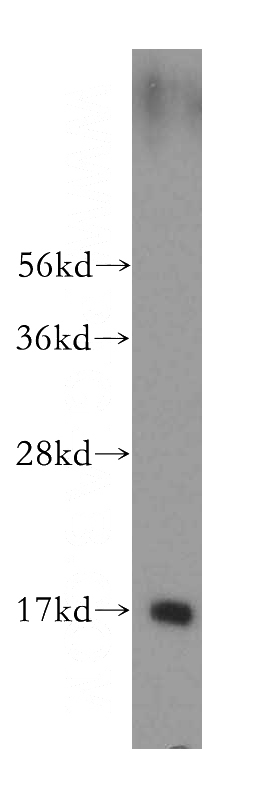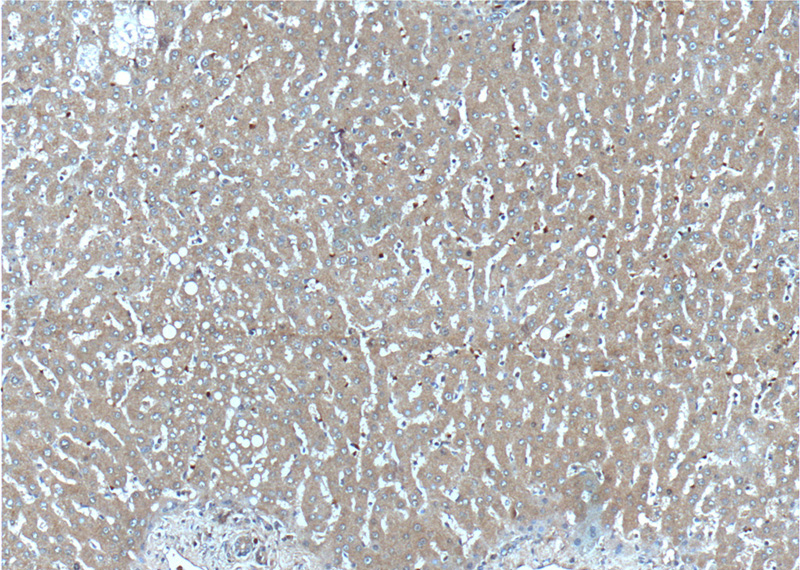-
Product Name
Angiogenin antibody
- Documents
-
Description
Angiogenin Rabbit Polyclonal antibody. Positive WB detected in human vein tissue, human heart tissue, mouse liver tissue. Positive IHC detected in human liver tissue, mouse testis tissue. Observed molecular weight by Western-blot: 17-20 kDa
-
Tested applications
ELISA, WB, IHC
-
Species reactivity
Human, Mouse; other species not tested.
-
Alternative names
ALS9 antibody; ANG antibody; Angiogenin antibody; HEL168 antibody; Ribonuclease 5 antibody; RNase 5 antibody; RNASE4 antibody; RNASE5 antibody
-
Isotype
Rabbit IgG
-
Preparation
This antibody was obtained by immunization of Peptide (Accession Number: NM_001385272). Purification method: Antigen affinity purified.
-
Clonality
Polyclonal
-
Formulation
PBS with 0.02% sodium azide and 50% glycerol pH 7.3.
-
Storage instructions
Store at -20℃. DO NOT ALIQUOT
-
Applications
Recommended Dilution:
WB: 1:200-1:2000
IHC: 1:50-1:500
-
Validations

human vein tissue were subjected to SDS PAGE followed by western blot with Catalog No:108050(ANG antibody) at dilution of 1:300

Immunohistochemistry of paraffin-embedded human liver tissue slide using Catalog No:108050(ANG Antibody) at dilution of 1:100 (under 10x lens).

Immunohistochemistry of paraffin-embedded human liver tissue slide using Catalog No:108050(ANG Antibody) at dilution of 1:100 (under 40x lens).
-
Background
Angiogenin (ANG), a angiogenic ribonuclease, is a member of the vertebrate-specific, secreted RNASE superfamily. Angiogenin, originally identified as a tumor angiogenic factor, was related with the growth and metastasis of numerous tumors. Angiogenin is also a component of normal human plasma and follicular Xuid. Its widespread expression in human tissues suggests angiogenin may have biological functions in addition to the promotion of angiogenesis. Recently, its biological activity has been extended to stimulating cell proliferation and promoting cell survival. It is a 17 kDa precursor which is cleaved to generate the 14 kDa mature protein.
-
References
- Qian D, Gong J, He Z. Bone Marrow-Derived Mesenchymal Stem Cells Repair Necrotic Pancreatic Tissue and Promote Angiogenesis by Secreting Cellular Growth Factors Involved in the SDF-1 α /CXCR4 Axis in Rats. Stem cells international. 2015:306836. 2015.
Related Products / Services
Please note: All products are "FOR RESEARCH USE ONLY AND ARE NOT INTENDED FOR DIAGNOSTIC OR THERAPEUTIC USE"
